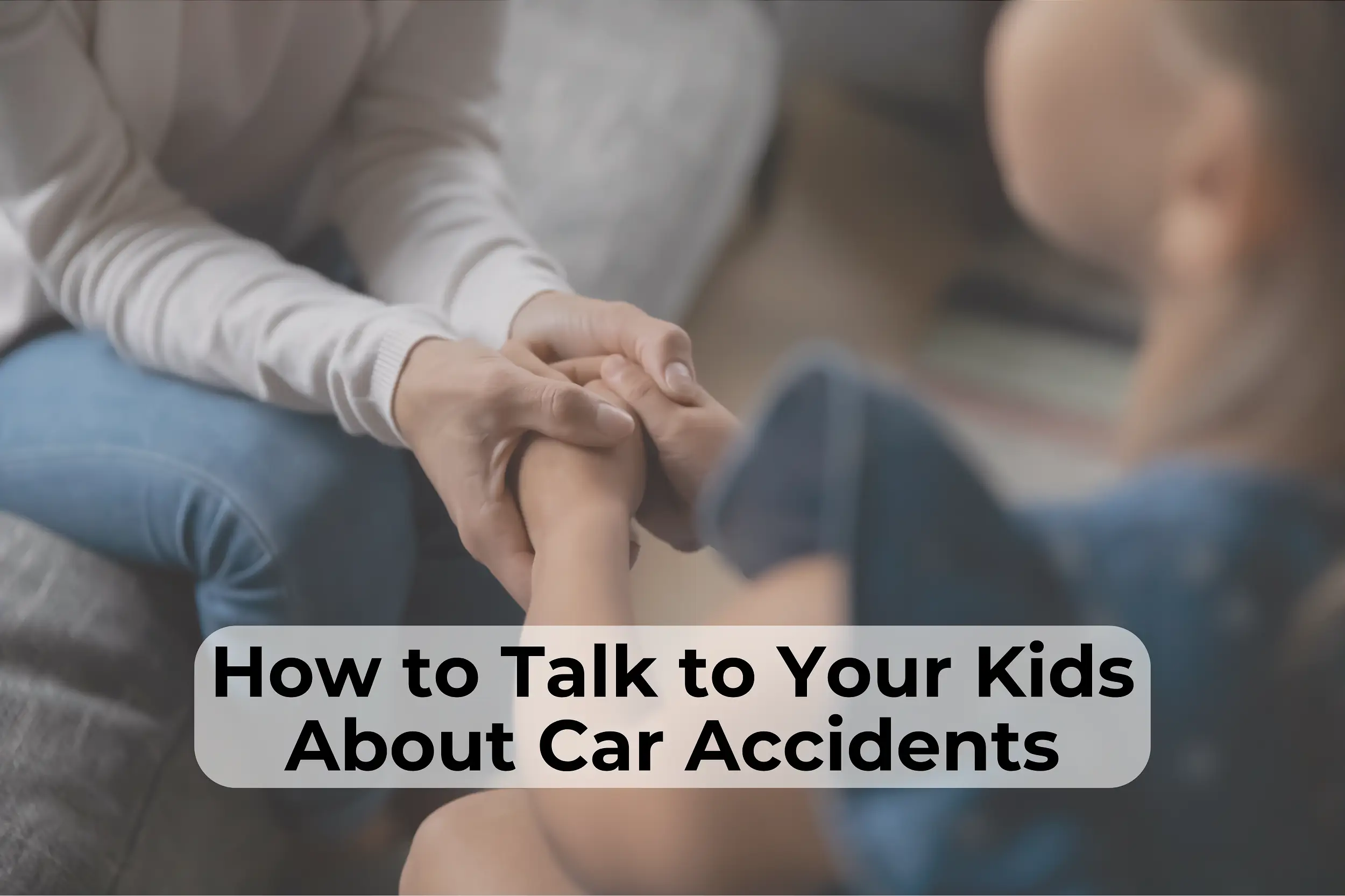
How to Talk to Your Kids About Car Accidents
July 17, 2025
Car Accidents: A Necessary Conversation
Knowing what to do in case of a car accident is an essential part of being a driver, but what happens if you have children? Teaching children what happens in a car accident and what to do in an emergency situation like an accident can help save lives.
Even though it’s a tough conversation to have, talking to your children, no matter their age, is essential. Here are some tips to starting the conversation and topics of discussion you should bring up.
In The Article
Age-Appropriate Car Accident Discussions
The first thing to consider when talking about emergency preparedness in car accident cases is the age of your child. If you have younger children, you may need to use different analogies. With older children, a step-by-step process with contingencies can help them keep mental focus in times of crisis.
Always be honest with your children but avoid scarring them by giving too much detail. Younger and older children both have a basic understanding of death, so be honest about how car accidents can be dangerous and sometimes lead to death. You don’t have to get into extensive detail.
Talk About Safety Tips While Driving
Your younger children may be afraid when you have discussions as serious as this but giving them solutions and things that they can do to help prevent injury, should an accident occur.
Some things you can discuss with them include:
- Seatbelt safety and necessity: You should always where your seatbelt when you’re in the car and avoid adjusting it in a manner that will make it less effective.
- Sitting properly while driving: You should always sit with your legs facing front, avoid slouching, and avoid putting your feet up, such as on the dash, back of the chair or out of a window.
- Don’t distract the driver: Never make loud sounds, play music too loud, or kick the driver’s seat while the car is in motion. Anything that could distract the driver could lead to an accident.
- For teen drivers, never take your eyes off the road. It’s essential to avoid distracted driving. Looking at your cell phone and adjusting the radio can both contribute to car accidents.
- Never drive drunk: Drunk driving kills, and it’s essential to always have a designated driver or a place to stay within walking distance of where you decide to drink.
These tips can help your children maintain safety in the car to help avoid auto accidents.
Teach Them What to Do After a Car Accident
While it’s important for your children to understand how to avoid car accidents, in the event of a collision, your children should know how to respond properly.
For younger children, make sure they know to avoid moving too much if they’re injured. If they can reach a cell phone, have them call 9-1-1 to report the accident. Work with them to help them understand how to describe your location to the dispatcher.
Do not exit the vehicle after a car accident, unless it is a dire emergency, like a fire or water situation that makes the vehicle more unsafe. People in car accidents may be disoriented after a collision, and exiting the vehicle without situational awareness could result in a pedestrian accident from other traffic.
It’s also very important to teach your children about first responders and how they can help. Answering questions for first responders can help them assess the injured party’s condition after the wreck. Let your children know that it’s important to listen to first responders, so they can get the proper care.
If you’re discussing car accident safety with a teen driver, remind them that it’s important to take pictures of the scene, if they are not injured. They should also collect contact information of other people involved in the wreck and potential witnesses.
How to Talk About Traumatic Events
Car accidents can be very traumatic. Though your child should be prepared for one and attempt to prevent them, they still occur. If your child has been in an accident, they may experience symptoms of PTSD afterward. You can help your child through these difficult times by having open conversations about their feelings.
Do your best to make them feel safe. Extra cuddling, hugs, and attention can help your child connect with you as a safe zone.
Don’t push discussion about feelings. Make sure your child feels safe to talk about their emotions and be open as they talk about their fears and memories of the car accident.
Everyone copes with trauma in different ways. If your child finds it beneficial, connect them with a professional therapist who has experience in car accident PTSD.
If You’ve Been in a Car Accident in Albuquerque, New Mexico
If you were in a car accident in New Mexico, and it was caused by someone else’s negligence, contact Ron Bell Injury Lawyers to learn more about your rights. We go above and beyond for our clients and help them find the resources available in their community to help them heal after a car wreck. Ring the Bell to get your free case evaluation today. 898-BELL
